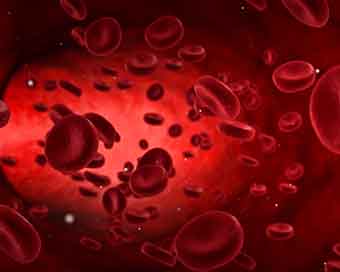Gallery
 PM Modi visit USA
PM Modi visit USA Only the mirror in my washroom and phone gallery see the crazy me : Sara Khan
Only the mirror in my washroom and phone gallery see the crazy me : Sara Khan Karnataka rain fury: Photos of flooded streets, uprooted trees
Karnataka rain fury: Photos of flooded streets, uprooted trees Cannes 2022: Deepika Padukone stuns at the French Riviera in Sabyasachi outfit
Cannes 2022: Deepika Padukone stuns at the French Riviera in Sabyasachi outfit Ranbir Kapoor And Alia Bhatt's Wedding Pics - Sealed With A Kiss
Ranbir Kapoor And Alia Bhatt's Wedding Pics - Sealed With A Kiss Oscars 2022: Every Academy Award Winner
Oscars 2022: Every Academy Award Winner Shane Warne (1969-2022): Australian cricket legend's life in pictures
Shane Warne (1969-2022): Australian cricket legend's life in pictures Photos: What Russia's invasion of Ukraine looks like on the ground
Photos: What Russia's invasion of Ukraine looks like on the ground Lata Mangeshkar (1929-2022): A pictorial tribute to the 'Nightingale of India'
Lata Mangeshkar (1929-2022): A pictorial tribute to the 'Nightingale of India' PM Modi unveils 216-feet tall Statue of Equality in Hyderabad (PHOTOS)
PM Modi unveils 216-feet tall Statue of Equality in Hyderabad (PHOTOS)The Badminton Association of India (BAI) has announced a 14-member-strong India squad for
- Men’s Sr Hockey Nationals to be played in division-based format from April 4
- Mensik denies Djokovic 100th title in Miami final
- KIPG: Son of a vegetable vendor, Bihar’s Jhandu Kumar eyes Worlds, 2028 Paralympics
- Hardik Singh credits hard work and team unity for receiving HI Midfielder of the Year award
- Djokovic, Alcaraz land in same half of Miami draw
Covid-19 infection significantly changes our blood cells: Study Last Updated : 30 Jun 2021 11:16:11 PM IST 
Covid-19 infection has the potential to significantly change the size and stiffness of red and white blood cells, a team of German scientists has found.
In some cases, the effect may continue for months, a possible reason why some affected people continue to complain of symptoms long after an infection (also called long covid).During Covid disease, blood circulation is often impaired, and dangerous vascular occlusions can occur, and oxygen transport is limited. These are all phenomena in which the blood cells and their physical properties play a key role.To investigate this aspect, a team of scientists from the Max Planck Institute for the Science of Light (MPL), the Friedrich Alexander University Erlangen-Nuremberg and the German Centre for Immunotherapy measured the mechanical states of red and white blood cells."We were able to detect clear and long-lasting changes in the cells -- both during an acute infection and even afterwards," reports Professor Jochen Guck, managing director of MPL. The team has published their results in the Biophysical Journal.The team examined more than four million blood cells from 17 patients acutely ill with Covid-19, from 14 people who had recovered and 24 healthy people as a comparison group, using a self-developed method called real-time deformability cytometry (RT-DC).In this method, the researchers send the blood cells through a narrow channel at high speed. In the process, the leukocytes and erythrocytes are stretched. A high-speed camera records each of them through a microscope, and custom software determines which cell types are present, and how big and deformed they are.They found that the size and deformability of the red blood cells of patients with the disease deviated strongly from those of healthy people. This indicates damage to these cells and could explain the increased risk of vascular occlusion and embolisms in the lungs.In addition, the oxygen supply, which is one of the main tasks of the erythrocytes, may be impaired in infected persons. Lymphocytes (one type of white blood cell responsible for the acquired immune defense) were in turn significantly softer in Covid-19 patients, which typically indicates a strong immune reaction.The researchers made similar observations for neutrophil granulocytes -- another group of white blood cells involved in the innate immune response. These cells even remained drastically altered seven months after the acute infection."We suspect that the cytoskeleton of immune cells, which is largely responsible for cell function, has changed," says Marketa Kubankova, from MPL.IANS London For Latest Updates Please-
Join us on
Follow us on








172.31.16.186







